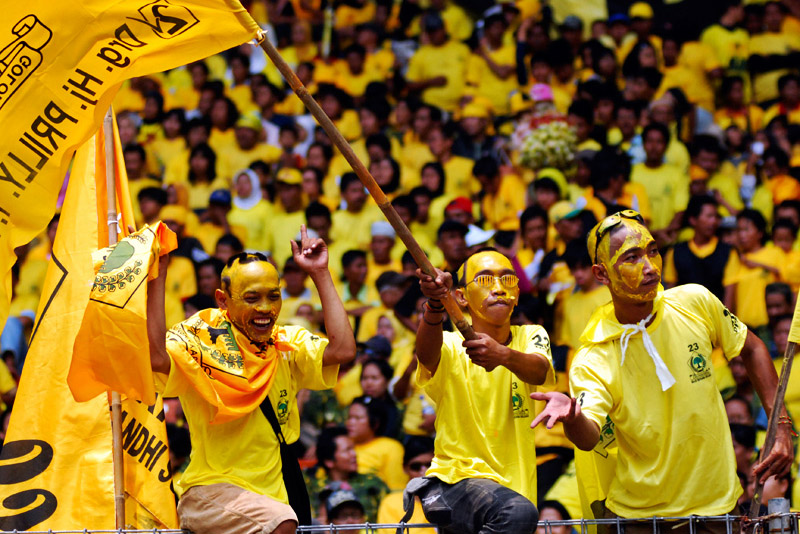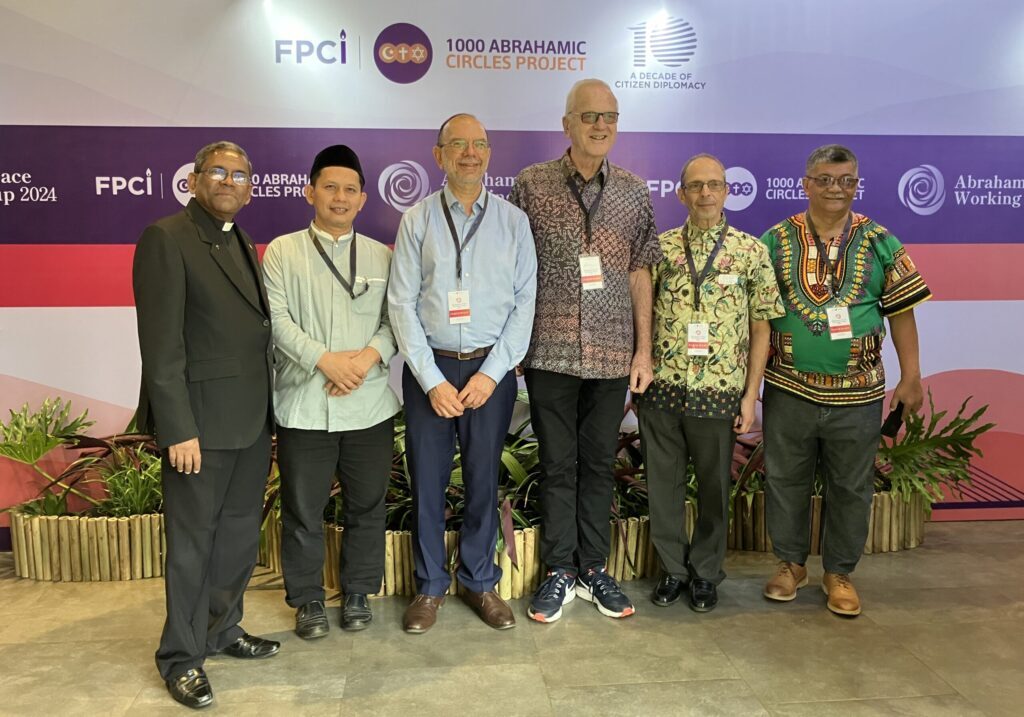Australia/Israel Review
Indonesia – The Model?
Sep 18, 2013 | Giora Eliraz

Giora Eliraz
From the very start of the Arab uprisings, more than two-and-a-half years ago, analysts looked to Indonesia, home of the largest Muslim community in the world, to better understand how transitions to democracy could be rendered compatible with Islam and applied to the Middle East. To be sure, Indonesia’s democracy is not yet fully fledged. Nevertheless, one cannot ignore the considerable distance that has been covered by Indonesia in its democratisation efforts during the past 15 years. Indeed, the Indonesian success appears all the more impressive in light of the latest upheaval in Egypt.
In May 1998 President Suharto was forced out of power, following nationwide protests that grew out of a complex historical context that included a gradual erosion of support among the country’s elites, a deep economic and financial crisis, increasingly vocal opposition, and an upsurge in violence. The outcome was the end of 32 years of Suharto’s “New Order” authoritarian rule and the beginning of a lengthy transition towards a civil, pluralistic democratic order.
During the first few years of the post-Suharto era Indonesia experienced considerable political and social turmoil, including violent sectarian conflicts, increased terrorism, and rising separatist aspirations. Then, while the prospects for a successful transition to democracy appeared unlikely to many observers, the slogan reformasi (“reform”), which was first used by the protesters against Suharto as a rallying cry, served to genuinely inspire and guide Indonesian society towards the realisation of a democratic vision. In other words, the reformasi battle cry served as an effective compass that enabled the country’s elites to overcome the centrifugal forces which threatened to destabilise the country beyond the breaking point.
A similar political compass has not been found in Egypt. To be sure, secular liberal circles played a significant role in driving the massive popular protest that triggered the military’s deposition of the elected president Mohammad Morsi and the Muslim Brotherhood from power. Nevertheless, there is some merit to asking whether all of these secular liberals, let alone the rest of the country, are genuinely committed to reform, i.e., to a truly pluralist democratic polity. Undoubtedly, many millions of Egyptians give priority to having a strong and effective governing authority that ensures food security and restores law, order, and stability.
Using Indonesia as a reference point yields another significant insight: the absence in the Egyptian uprising of an influential Islamic current, underpinned by a strong pluralistic Muslim civil society, that could successfully lead the transition to democracy. It is notable that in Indonesia reform-minded Muslim democrats from the dominant Muslim mainstream, based largely on the two huge Muslim movements, Nahdlatul Ulama (NU) and Muhammadiyah, served as the organisational frameworks for tens of millions of Muslims. It was these forces that led the protest against the authoritarian regime of Suharto and laid the foundation for the new democracy in Indonesia.
As the NU and Muhammadiyah were massive movements, varied voices were heard within their ranks. Overall, however, these two Muslim movements still play an important role in guiding Indonesia along a democratic path, while at the same time maintaining fidelity to basic axioms of the Indonesian polity, including separation between state and religion.
They also participate in official efforts to promote interfaith dialogue, interreligious solidarity, religious pluralism, and conducting a war of ideas against radical Islamic doctrines. In the absence of such a moderate Muslim mainstream force, Egypt finds itself bitterly polarised between a secular nationalist current that is not largely committed to democratic values, and a deeply rooted Islamist camp that is basically alien to genuine democratic and pluralist values.
The Indonesian case also illustrates that a primary pre-condition for substantially decreasing the army’s involvement in politics, after decades of army-backed authoritarian rule, is the emergence of consensus-based civil governance that is able to prove its ability to maintain stability, security, the rule of law, and to effectively address economic problems and challenges. During the Muslim Brotherhood’s one year in power it displayed none of these attributes. In other words, it is hard to envisage a substantial reduction of the army’s role in Egyptian politics as long as civilian political actors do not demonstrate the ability to capably govern.
Indonesia as a polity, society, and cultural system is almost terra incognita for most Middle Easterners. Prior to the Arab uprisings, few advocates of liberal democracy in Egypt and elsewhere in the region paid heed to the details of the democracy building experience in Indonesia. Some satisfied themselves with Indonesia’s “proof” that Islam and democracy were compatible and that the global process of democratisation does not leave countries with a predominantly Muslim population untouched. Others pointed to Egypt’s poor state of affairs in comparison to Indonesia’s experience. In the post-Mubarak era, certain circles did pay attention to Indonesia’s experience, resulting in a dialogue between political and NGO activists, academics, and media members from both countries. But this dialogue does not seem to have an impact on the public, political discourse in Egypt.
Perhaps certain advocates of democracy in Egypt still look upon Indonesia’s democracy with envy. It is likely that they realise that the successful protest against Morsi, which served as a common denominator for diverse anti-Muslim Brotherhood forces, cannot be translated into any kind of consensual program for substantial political reform. Strong emotions can catalyse political action, but they cannot substitute for the hard work of institution building and fashioning a social contract necessary to stabilise the political and social order.
In any case, all eyes are now on the confrontation between the military rulers of Egypt, still largely backed by millions of Egyptians, and the Muslim Brotherhood. In today’s bitterly polarised Egypt, this confrontation seems to be perceived by both sides as a zero-sum game.
Dr. Giora Eliraz is a Research Associate at the Harry S. Truman Institute at the Hebrew University of Jerusalem and Affiliated Fellow at KITLV/Royal Netherlands Institute of Southeast Asian and Caribbean Studies in Leiden, Netherlands. © Tel Aviv University’s Moshe Dayan Centre for Middle Eastern and African studies, reprinted by permission, all rights reserved.






